

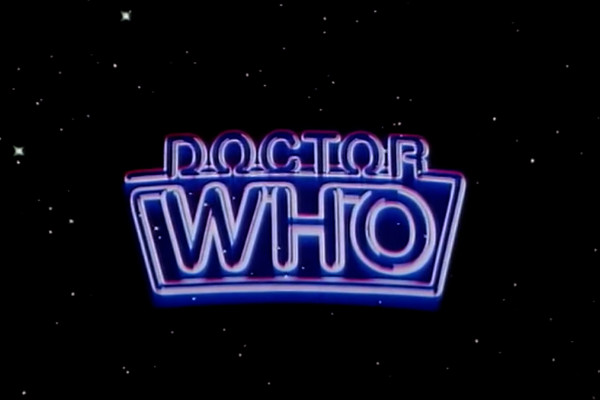
As this month marks thirty years since Colin's first appearance as the Doctor, The Anorak Zone decided to cast fresh eyes over the period and find out if it's really as bad as its reputation. Due to the content of many of the stories, then readers are advised that some of the images in this article may be disturbing to those of a nervous disposition. Join me as I look back and rank his stories as the Doctor from worst to best...
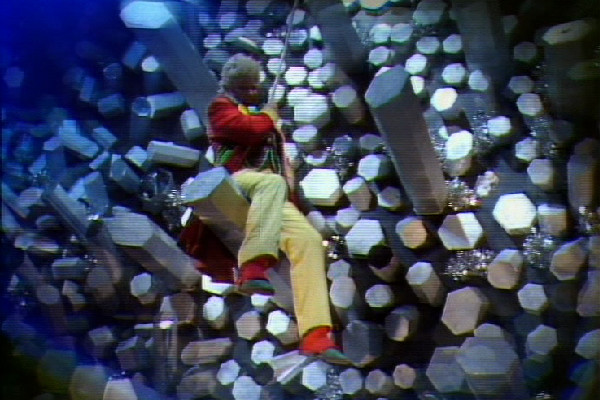
The concept of the Doctor regenerating into an arrogant, half-insane and amoral egomaniac is perhaps one that could have worked under different circumstances. With stronger writing, better production and, it has to be said, a more subtle lead performance, such an anti-hero could maybe have been compelling. However, one question that the series is never able to satisfactorily answer is why anyone would want to travel with such a person.
This is at its worst with Timelash, where the programme has become so directionless that even the companion complains of "aimless wanderings". Such a fractious Doctor-companion relationship isn't helped by the fact that the Doctor and Peri mellowed towards each other over the previous four stories, making such arguments stand out more in the run; Colin's first full season experimented with 45 minute length episodes, making most of the ructions feel like time fillers due to an underdeveloped plot, rather than real disagreements.
Despite such fundamental failings, Timelash is, like The Twin Dilemma, very much a guilty pleasure. This is an era where the title sequence looks like the end credits to The Two Ronnies, and overlit sets scream out "light entertainment". Worse, by the mid 80s the programme was beginning to look increasingly antiquated and old hat, not helped by Timelash's very unsophisticated rendering of SF. Yet all this is forgiven for the sight of Paul Darrow gleefully hamming it up opposite a glove puppet; despite the urging of everyone involved in the making of the story, the Blake's 7 star continually sends the whole thing up throughout. The Doctor mocking deformity and the complete lack of an onscreen plot resolution are serious issues, but, if you're really in the mood, this can be great entertainment.
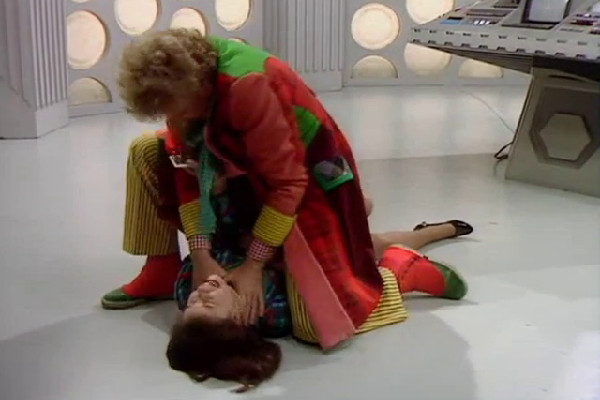
Often cited as the worst Doctor Who story of all time, while it may have contenders to that title and doesn't even quite make last spot here, it's definitely in the running. Colin's debut (if you disregard his small cameo at the end of The Caves of Androzani), it's rare to see a story fail on every single level imaginable, from script to acting to direction to music. Yet despite its overreaching ineptitude, Colin's redefining of "over the top" can be quite amusing, if, as with Timelash, you're really in the mood. That said, the increasingly violent new Doctor attempts two strangulations, leaving the programme without a moral core.
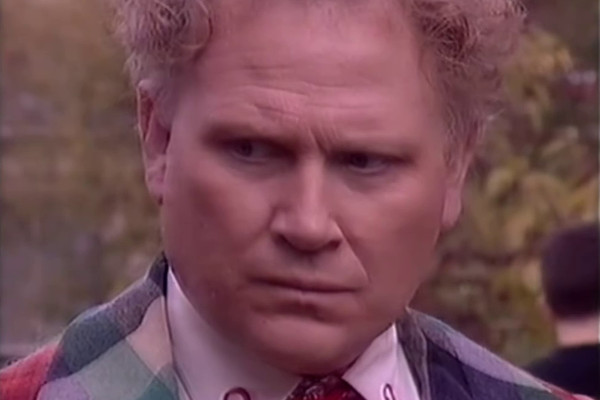
It's a testament to the general low quality of the era that this Childen In Need/Eastenders 3D crossover could be ranked seriously amongst Colin's run. It's not that the tacky runaround is worthwhile on its own, but as a showcase for Colin in the role it's one of the best performances he ever gave... in Bonnie Langford's case it's her best. It's a cheap mess that further embarrassed the series - but for both of them, it's a highlight.
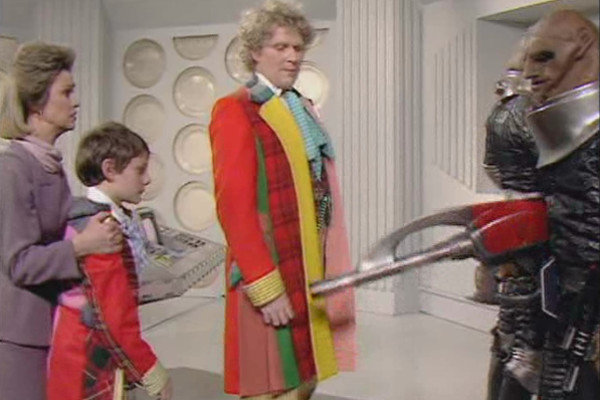
Recent revelations in the media have now made this segment of The Jim'll Fix It show an incredibly uncomfortable viewing experience. Yet even though, as a skit, it's not generally regarded as "canon", it's still interesting to look back and realise that all the reasons why the programme was justifiably taken off the air in 1985 are here.
A viewer named Gareth Jenkins writes to the series and asks to be given a part in Doctor Who. He's given a role in this sketch, specially written by Eric Saward, which involves monsters repeatedly threatening to kill him, before they die graphic deaths. For his troubles, he's given a gun as a keepsake after he watches the monsters coughing up green blood in their death throes. Jenkins was just eight years old. Whatever the debatable merits of the Colin Baker era, it was a programme now completely out of touch with its demographic.
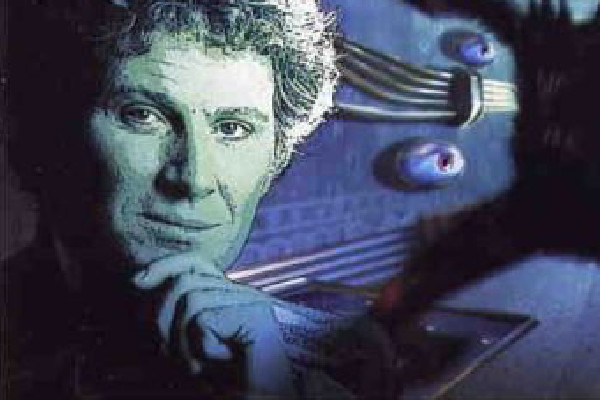
While this article is here to cover television stories, audio play Slipback gets a special inclusion because it's one of only two Doctor Who audios produced featuring the incumbent regulars (along with the 1976 Tom Baker story The Pescatons). Colin's goes even further into legitimacy, given that this was written by script-editor Eric Saward while the series was taken off the air. In the show we had "Eric does Robert Holmes", and here it's very much "Eric does Douglas Adams". But it's passable stuff, even if you'll struggle to remember it the second it ends.
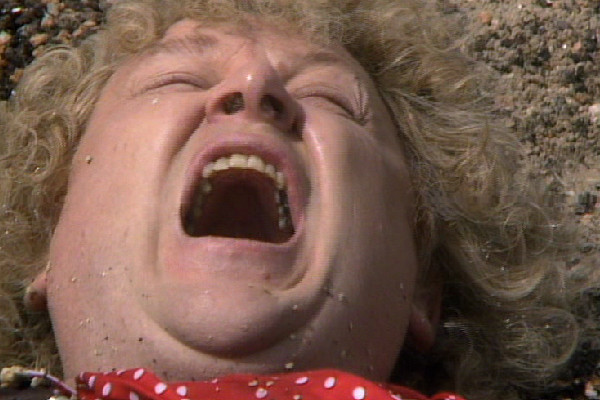
If the series was on shaky ground before the hiatus, then it was in serious trouble after it. It goes from skirting near to the aforementioned light entertainment and spilling right into it; bright lights, tacky sets, Tony Selby as a cutthroat mercenary, Brian Blessed (once a good actor) torpedoing both the show's and his own credibility, plus Bonnie Langford as the new companion. Although Langford is better than you may expect, it's still a deeply miscast choice, while Colin, his confidence seemingly shattered, has put on weight, been forced into a bleached perm and gives a horrible, hammy performance throughout. Whether criticisms of his portrayal during season 22 have merit or not, his shouty, self-conscious performance during his final season warrants no defence.
It's not that the season-length story isn't without some good ideas, but they're buried deep in one of the most inward-looking and continuity-heavy stories the series ever produced. In hindsight, it doesn't feel that self-reflexive when bearing in mind the recent Matt Smith seasons, but the TV Boxset/iPlayer culture of today didn't exist back in the mid 80s, resulting in the BBC having to make continuity announcements before each week's screening in order to provide recaps as to what was going on. The metatextual idea of the Doctor being on trial in real life and in the programme was quite a nice one, but executed badly, with little or no real drama. The series was brought back in the 25 minute format, but with a curtailed 14 episode run, and the use of film stock on location shoots was discarded in favour of cheap video tape.
The entire thing smacks of a production team that was no longer working, script editor Saward resigning and then acrimoniously criticising the producer in interviews afterwards. The season lurches from a seriously ill Robert Holmes delivering material that was way below his best, to Philip Martin delivering a tale that became so confused in the editing process that the star of the programme didn't understand the script. The entire thing barely hangs together and is a testament to a communication process that had almost completely broken down; sadly for Baker, this return to the screen simply wasn't good enough.